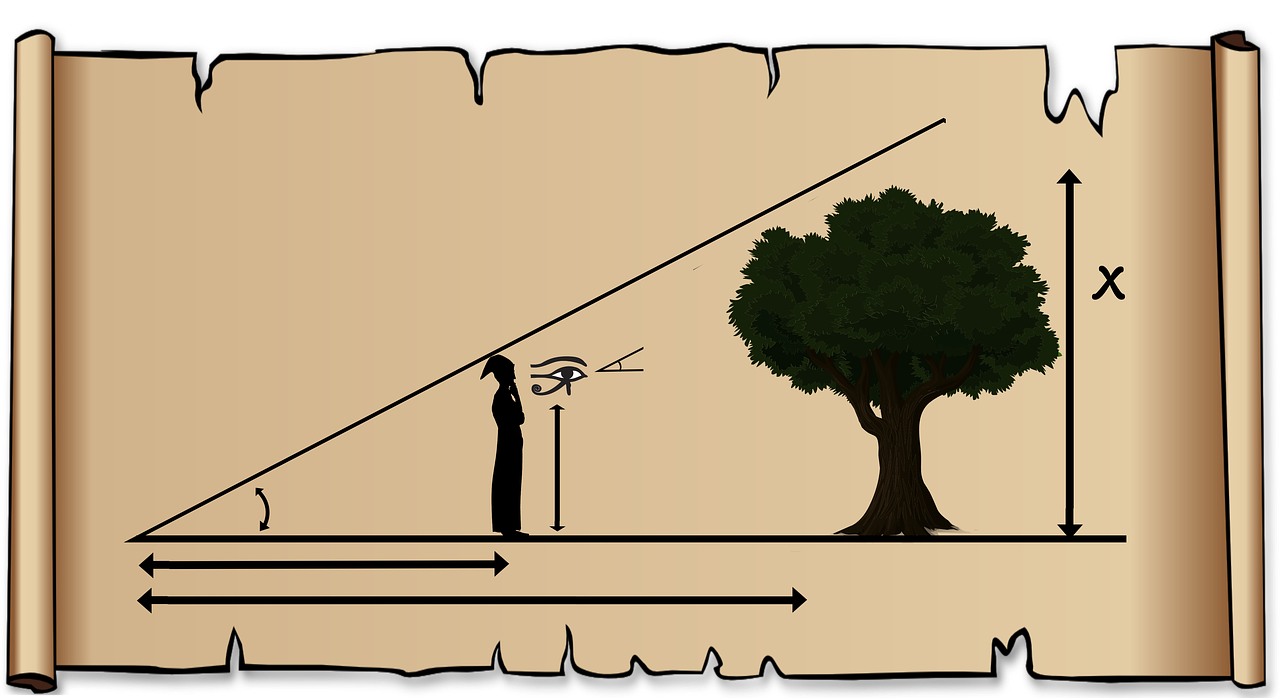It is often believed that we invented mathematics as tool for understanding how the universe operates, but what if the universe itself is intrinsically mathematical ?
In almost every sectors of our lives today, we seem not to do without mathematics when better results are expected or better decisions are to be made, even if one is not formally educated, he/she would be forced to at least have idea of the simplest mathematical techniques like the basic arithmetic operations (addition, subtraction, e.t.c), unless he/she wishes to be cheated/deceived, especially in the commercial world - it seems as though mathematics doesn't lie.
In the sciences, physics - a discipline developed to understand the universe from a fundamental perspective, has today become so mathematically dependent that at some point it is difficult to separate mathematics from reality, it is as though mathematics is itself reality. An example is the case of a "particle", it is believed that matter and energy (including force and radiation) can be reduced fundamentally to the so called "elementary particles" of which most are presented in the standard model of particle physics. Classically, particles are believed to be point-like entities - like a ball reduced to a point of almost zero/zero volume, but physicists, especially particle physicists knows otherwise.
According to one class of physicists, a particle is a "collapsed wave function". For those of us familiar with quantum mechanics and the generally accepted quantum mechanical interpretation - Copenhagen interpretation, this wave function is believed to be an abstract mathematical entity for calculating probabilities and yet it (despite being something conceived by our mind) appears as a particle when measurement/observation is made.
Another class of physicists believe that a particle is an "irreducible representation of a group - a symmetry group to be precise, this group concept is under a mathematical theory in abstract algebra that is commonly believed to be under pure mathematics - not applied mathematics, and it is called group theory.
Another class of physicists believe that a particle is an excitation of a field, an electron is an excitation of the electron field, protons are excitations of the proton field, photons are excitations of the electromagnetic field, e.t.c. This field concept is under a generalized theoretical framework called quantum field theory - the underlying theory for the standard model of particle physics. However, the field excitation definition of a particle is more abstract than real, there is no experiment that "directly" supports this definition.
There are many other abstract definitions in addition to the aforementioned ones that have been proposed by physicists and all stem from the mathematics of their underlying theories, the reason why some of these definitions of a particle are accepted to be correct is that their corresponding theories predicts/explains certain experimental findings.
Another concept that also shows that the universe might be intrinsically mathematical is the concept of "quantum spin", every elementary and subatomic particles possesses this property but it's exact physical nature is still a mystery. Classically it is believed to be analogous to a classical object - with a defined size and mostly spherical in shape, spinning on it's axis and it is because particles with quantum spin possesses angular momentum just like a rotating/spinning classical particle does, but calculations shows that this analogy might be misleading - particles with quantum spin might not be spinning/rotating on their axis. The quantum spin is rigorously established mathematically with complex mathematical concepts, it is for now more of a mathematical concept but yet it affects and can be affected by the physical world. For example, a charged particle with spin can be affected by a magnetic field and it's also partly responsible for the existence of the magnetic field from magnets, the spin is also responsible for the existence of bulk matter or why we can't pass through a solid object like the wall - see Pauli exclusion principle.
If the universe seems mathematical at fundamental level, then what stops it from being mathematical overall. ?
Another evidence that also seems to point to the fact that mathematics might not have been invented by us can be seen in the world of insects. For example, it seems as though bees are aware of the "honeycomb conjecture" - probably instinctively. This conjecture is a mathematical conjecture that has been known to mathematicians since around 36 BC and was proved formally in 1999 by Thomas Hales. According to this conjecture, a regular hexagonal grid is the best way to divide a surface into regions of equal area with the least total perimeter. The honeycombs made by bees to store honey are seen to be made up of hexagonal cells/grids of almost equal areas as seen in the honeycomb conjecture, this construction approach is believed to require lesser energy input/save energy.
There are many other examples like this that shows the universe might be fundamentally mathematical. When we take our time to closely observe the universe from galactic (including some of our daily activities) to atomic level, patterns can be observed and these patterns are describable mathematically, especially when their properties can be quantified.
The computers we use today to run simulations of real life events basically understands and utilizes mathematics for all it's purposes, and it could be argued to some extent that our universe might actually be a gigantic computer with programs far more complex than the kinds made by us.
Well, it seems that the beliefs of the early Pythagoreans (followers of the Greek philosopher Pythagoras) might have been underestimated, they were the first to suggest that the universe was fundamentally mathematical and they in fact, laid foundations for the mathematization of science.
However, no one knows for sure if the universe is fundamentally mathematical or not and as a matter of fact, this topic is still a philosophical one. The arguments presented in this article are based on personal opinions and should not be taken as established facts.
It's here we conclude this article, have a thoughtful day and see you next time.
For further reading
Pythagoras’ Revenge: Humans Didn’t Invent Mathematics, It’s What the Physical World Is Made Of
Thank you all once again for stopping by to read my jargons and also thank you @juecoree, @discovery-it and the @Steemstem team for your valuable supports.
Lastly, please don't forget to do the needful
Upvote
Comment
Reblog
If you enjoyed my jargons.




One the philosophical interpretations I find entertaining is if the equations model reality or if reality models the equations :3
Personally, i don't know and i don't think anyone knows with 100% certainty. It could be either of the two or it could be both.
Welcome to the paradoxical universe 🙃.
The old "chicken or egg" question..
The Universe as we perceive it. Considering we are in a tiny little spot in the Universe and the majority of it is beyond our observational technology.
MAth is the language we use to explain what we see in the Universe. Whether or not the Universe is actually mathematical, mathematics can be used to explain it. Although our Math needs to develop a bit more before we can truly understand the universe :-)
Thanks for this text. I have a question/comment relative to this:
We have hundreds of year of experimental data that supports the Standard Model and its quantum field theory nature. We have thus here a given QFT that makes predictions, and those predictions agree with data. I hence do not understand the sentence in your post. Do you mind elaborating (I guess the "directly" is probably what I didn't understand as you seem to say the opposite in the next sentence)? Thanks in advance.
Except this, for the rest of the post, yes maths are everywhere. In addition, I would add that physicists use them as a tool, and not as a purpose.
Let's assume your philosophy is correct - that mathematics is used as a tool, this would imply that the universe can be described independent of mathematics and it leads to two kinds of experiments, the qualitative kind and the quantitative kind, the latter being important for mathematical analysis. In your comment, you made mention of experimental data which i believe is quantitative in nature, remember that the quantum world unlike the classical world houses entities that cannot be observed directly because of their size - that is if they actually have, and other factors. If i may ask, does the experiment tell about the shape of an electron or quark or photon ?
Different theories can give the same predictions that can conform numerically with quantitative experimental data but give different qualitative predictions, an example can be seen in Einstein's and Newton's theories of gravitation.
Also remember that there are issues yet to be resolved by the standard model of particle physics. If another theory exists that would predict what the standard model predicts and also resolve these other issues, then there's possibility that there might be another definition for a particle, it could be something we may not have imagined at all - the universe is full of surprises.
Well, this is not "my" philosophy. It has, as a matter of fact, nothing to do with philosophy. It is instead the mere definition of physics as the science that studies the properties of matter (and the laws governing all associated phenomena). Mathematics are useful. That's clear. But they are not the purpose, and I don't see how this implies that the universe can be described independently of mathematics. I have never made this implication and I disagree with it.
In addition, quantum theories are predictive (which is why they are called "theories") and these predictions can be compared with data. Moreover, many quantum phenomena have been observed and some are even at the source of technological applications.
To discuss the last point of your reply, it is clear that they are issues with the Standard Model. No one will say the contrary. However, the Standard Model works super well for many things as a quantum field theory. Any theory that may supersede it in years from now (and I hope I will live enough to see this happening, which is not guaranteed), will just be as the Standard Model in the appropriate limit (exactly as for relativity and classical mechanics). Therefore, I maintain my statement. We have here a predictive quantum field theory, whose predictions are in excellent agreement with data. In other words, we have an example of a quantum field theory that works (despite of being imperfect).
You seem to have a very strong bias mind. Well, it is a free world and we are free to believe whatever we like.
If you say so....
Let me just finish by reminding that this "bias" is motivated by 100 years of data and discoveries (i.e. facts), and there is currently no other framework capable to do as good. This is the reason why this framework is acknowledged as the standard paradigm by physicists from all over the world.
This being said, yes we can believe in whatever we want as individuals.
Most of mathematics, if not all of it, reduces to logic. This is especially clear in Set Theory, Group Theory, Topology, and Geometry as these theories have their foundations in the study of logic.
Ancient philosophers such as Plato and Aristotle clearly saw parallels between the material world and world of ideas. If there is a rational structure behind reality, then it might be possible to speak about it in rational terms.
Some thinkers would refer to things like "the mind of God" when they expressed the opinion that there might be rational structures behind reality.
The possibility that there might be a rational foundation to the universe has been the subject of speculation throughout history.
Thanks for your contribution to the STEMsocial community. Feel free to join us on discord to get to know the rest of us!
Please consider delegating to the @stemsocial account (80% of the curation rewards are returned).
Please consider including @stemsocial as a beneficiary to get a stronger support.
Your content has been voted as a part of Encouragement program. Keep up the good work!
Use Ecency daily to boost your growth on platform!
Support Ecency
Vote for new Proposal
Delegate HP and earn more
Congratulations @clinton19! You have completed the following achievement on the Hive blockchain and have been rewarded with new badge(s):
Your next target is to reach 10000 upvotes.
You can view your badges on your board and compare yourself to others in the Ranking
If you no longer want to receive notifications, reply to this comment with the word
STOPCheck out the last post from @hivebuzz:
Support the HiveBuzz project. Vote for our proposal!
Interesting narrative. Reminds me a bit of a book I read earlier this year by Alan Lightman.
I'm not a math guy, but I do believe that math lies at the heart of understanding our universe. As our knowledge grows, more and more mysteries of this reality will come to our understanding through math.
Thanks for sharing this!
Cheers!
I am amazed that I was able to even understand this article. I had such a math phobia when I was in school that I avoided it to the point of choosing a major in college that didn't require it. Well not beyond Algebra. My husband is a patient soul who happily answers questions or explains concepts to me without making me feel rubbish about myself. What scares me is that now schools are eliminating upper level math classes at the high school level here in the USA. Not a good idea. We don't need to get any further behind than we already are.
Mathematics is built into the universe. Just look at Fibonacci numbers, the Golden Ratio, pi...